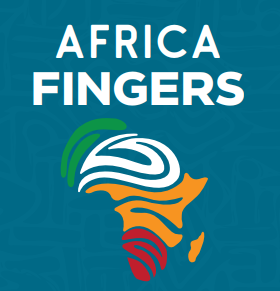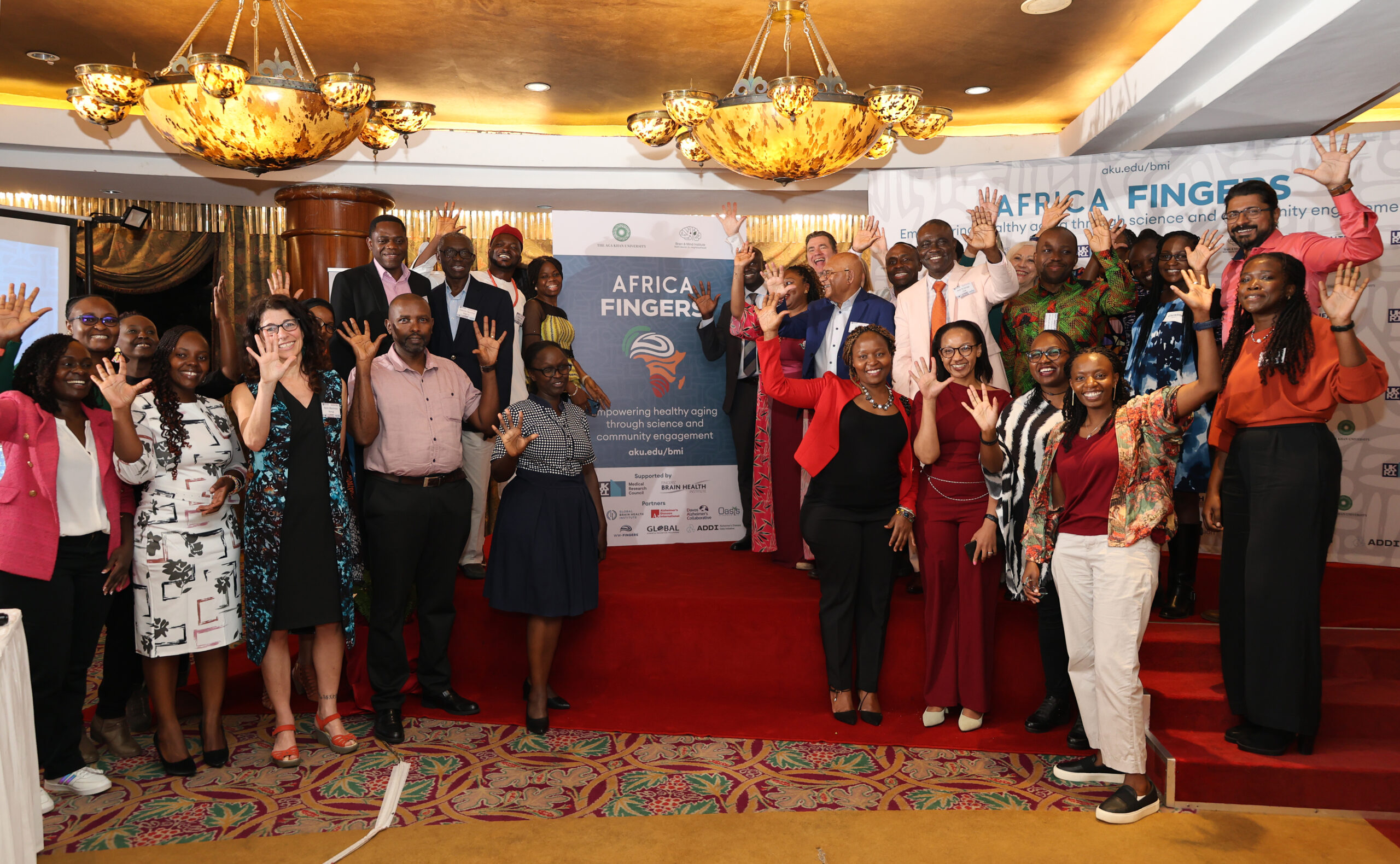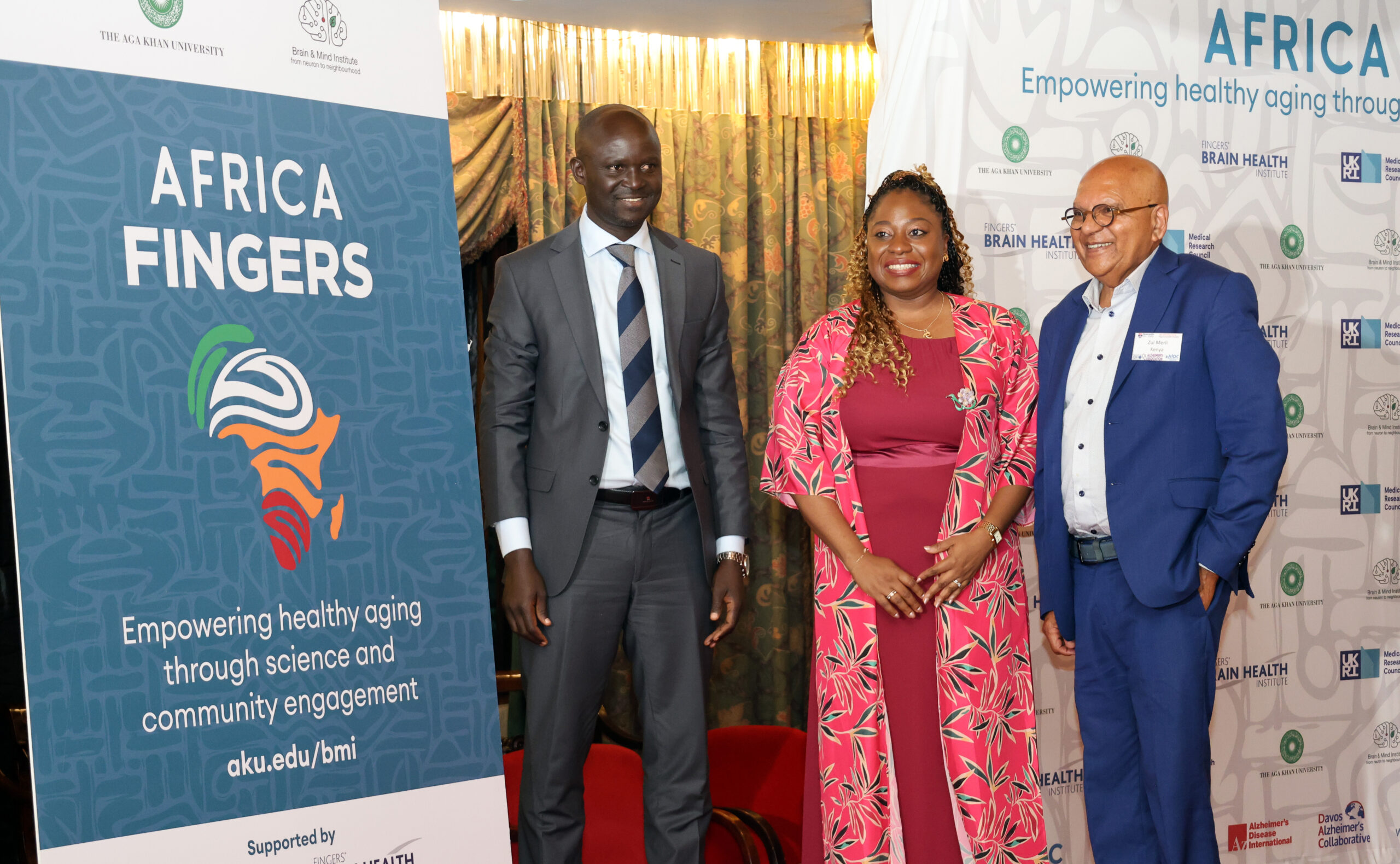
The Africa-FINGERS Project
– Dementia risk reduction in the African context:
Multi-national implementation of multimodal strategies to promote healthy Brain Aging in Africa
Despite the continent’s high prevalence of modifiable risk factors, dementia prevention in Africa is critically underexplored. The Africa-FINGERS program is pioneering culturally sensitive, multidomain interventions tailored to the unique challenges of the region. Integrating cutting‐edge multimodal biomarker evaluations tailored to regional contexts, it aims to introduce scalable and sustainable interventions poised to transform dementia risk reduction efforts across the continent.
Latest page update: 21 October, 2025
Aim of the project
Africa-FINGERS marks the inaugural effort to coordinate and implement culturally informed multidomain interventions to reduce AD/ADRD risk across the continent, with a strong emphasis on sustainability of these interventional and novel strategies for assessment, management, and prevention.
Location
Currently recruitment in Kenya (Nairobi and Kilifi sites) and Nigeria (Awka, Lagos, Yobe, Ibadan sites).
If feasible will expand to other African countries part of the project.
Countries involved:
- Kenya
- Benin
- Cameroon
- Cote D’Ivoire
- DR Congo
- Egypt
- Ethiopia
- Mauritius
- Nigeria
- Ghana
- Tanzania
- South Africa
- Uganda
- Botswana
Local setting
Protocol development using co-design methods
With the community-based participatory research (CBPR) approach, the team is developing a multimodal intervention protocol for dementia prevention in African populations that uses participatory methods, co-design workshops, and collaborative stances combining diverse disciplines, expertise, research–policy–practice partnerships. Integrating CBPR principles, the involvement of local stakeholders from the outset ensures that community values and priorities shape the intervention and promote sustainability.
Local organizations will support in the recruitment for the co-design workshops.
Enrollment strategy
Participants (300 from Kenya and 300 from Nigeria) will be recruited from pre-phenotyped observational cohorts.
- In Nigeria, the PERODEM and ADIPRES-N.
- In Kenya: FemBER Africa, Brain Resilience Kenya, AD-Detect Kenya, the Brain health Assessment Protocol Kenya project, and BMI Living Lab cohorts.
Enrichment strategies will target socio-economically deprived areas and specific community groups, in both urban and rural settings, collaborating with governmental and NGOs to ensure a diverse and representative sample reflective of Kenya and Nigeria’s multi-ethnic population.
Illiteracy was not an exclusion criterion. Neuropsychological tests were selected based on their low literacy demands and most have been adapted for these settings.
Organizations involved
The Africa-FINGERS study coordinating centre: The Brain and Mind Institute at Aga Khan University Kenya
Principal Investigator (PI)
Chinedu Udeh-Momoh, Aga Khan University, Kenya
Research team
Prof. Miia Kivipelto, Imperial College London (Co-PI)
Prof. Mansoor Saleh, Aga Khan University, Kenya (Site PI Nairobi)
Prof. Anthony Ngugi, Aga Khan University, Kenya (Site PI Kilifi)
Dr. Adedoyin Ogunyemi, University of Lagos, Nigeria (Site Co-PI Lagos)
Prof. Njideka Okubadejo, University of Lagos, Nigeria (Site Co-PI Lagos)
Dr. Valentine Ucheagwu, Nnamdi Azikiwe University Awka, Nigeria (Site PI Awka)
Prof. Mahmoud Bukar, Yobe State University, Nigeria (Site PI Damaturu Yobe)
Prof. R.O. Akinyemi, University of Ibadan, Nigeria (Site PI Ibadan)
Duration of the project
60 months
Duration of the intervention
24 months
Project start date
2024
Project end date
2029
Current stage of the project
Ongoing
Number of study participants
600 (n=300 Kenya, n=300 Nigeria)
Target population
Community-dwelling adults aged 50 to 85 years at-risk of dementia
Project work packages
WP1 (CBPR), WP2 (Clinical Trial), WP3 (Intervention Costing), WP4 (Dissemination)
Outcomes
Primary outcome
- Change in cognition measured by A-NTB and a battery of other cognitive tests
Secondary outcomes
- Multidomain cognition: changes in individual cognitive domains
- Functional level
- Healthy lifestyle changes: covering diet, physical activity, cardiovascular risk factors, social and cognitive activity.
- Cardiovascular and metabolic risk factors (e.g. anthropometric measures, blood pressure, lipid profile, glucose levels)
- Physical activity
- Diet
- Stress
- Resilience
- Anxiety and depressive symptoms
- Sleep
- Quality of life
Exploratory outcomes
- Genetic analyses (e.g. polygenic risk scores, ADRD-related genes with emphasis in African-specific risk variants)
- Neuroimaging (MRI, FDG PET)
- CSF and blood AD-biomarkers: (Aβ42/40 ratio, phosphorylated tau, brain-derived tau, neurofilament light chain, and glial fibrillary acidic protein)
- Retinal imaging
- Sub-study on sex and gender influences on dementia prevention mechanisms
- Cost-effectiveness evaluation
Intervention
Structured multimodal lifestyle intervention
Intervention domains
- Physical Activity
- Nutritional Counselling: based on local nutritional guidelines
- Cognitive Stimulation
- Monitoring and management of vascular and metabolic risk factors
The Africa-FINGERS model has been tailored for suitability to context through community-based co-design, from adaptations of the neurocognitive test battery to intervention specific adaptations, tailored to be responsive to the needs and expectations of the target populations.
Results
Results have not yet been published.
Acknowledgements
The Africa-FINGERS project is funded by the UKRI MRC/MR/Y019822/1.


Official launch, December 2024
Dr. Abuya Norbert, Assistant Director, Directorate of Primary Healthcare, Ministry of Health Kenya | Dr. Chi Udeh-Momoh, Principal Investigator for Africa-FINGERS | Dr. Zul Merali, Founding Director of the Brain and Mind Institute at the Aga Khan University
Publications
Dementia risk reduction in the African context: Multi‐national implementation of multimodal strategies to promote healthy brain aging in Africa (the Africa‐FINGERS project)
(Alzheimer’s & Dementia, 2024)
Translating lifestyle interventions for optimal brain health in Africa
(Nature Reviews Neurology, 2025)

